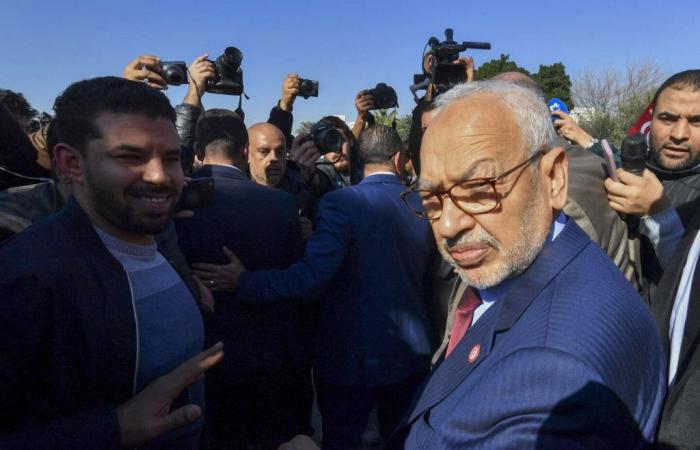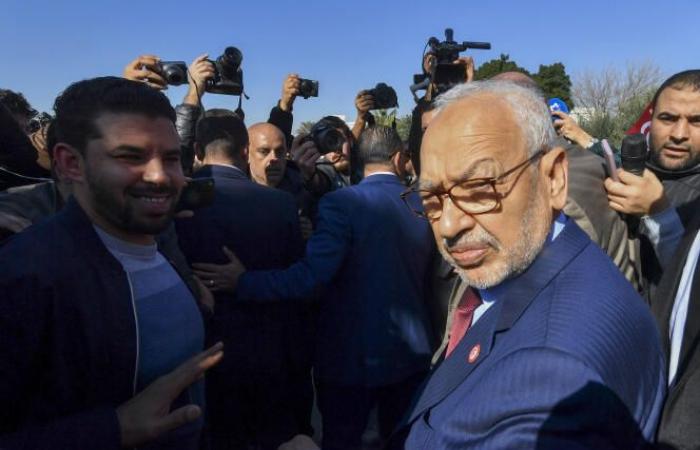At 58, Ahmed Gaaloul is living his second exile in London. Like him, dozens of officials and members of the Islamo-conservative Ennahda party have left Tunisia since President Kaïs Saïed assumed full powers on July 25, 2021. Others, like Rached Ghannouchi , historic leader of the movement, are in prison.
Already repressed under the regimes of Habib Bourguiba (1957-1987) and Zine El-Abidine Ben Ali (1987-2011), where the party was condemned to clandestinity, Ennahda is today weakened by that of Mr. Saïed, in a context of increasing pressure on the opposition. Former minister, deputy and member of the executive bureau of Ennahda, Ahmed Gaaloul left Tunisia for the first time in the 1990s to avoid the repression of Mr. Ben Ali. He returned there after the fall of the latter, in 2011, and then resumed his activities within his party, now legalized.
Ten years later, Kaïs Saïed is in power. After the July 2021 coup, Mr. Gaaloul quickly found himself targeted by the authorities. Banned from leaving the territory in December of the same year, he nevertheless managed to leave in February 2022. “That’s when I decided not to come back. We also felt that certain members of management had to stay abroad to continue our activities”he explains, describing this second exile as ” trauma “.
The activists targeted
According to Ennahda, around fifty party executives have been arrested since July 25, 2021. Among them, Ali Larayedh, former prime minister and vice-president of Ennahda, placed in detention in December 2022, as well as Noureddine Bhiri, former minister of justice, arrested in February 2023.
In April of the same year, the Kaïs Saïed regime further intensified its repression by arresting Rached Ghannouchi. Like many other opponents, Mr. Ghannouchi is accused of plotting against state security. Simultaneously, the Ministry of the Interior ordered the closure of Ennahda’s headquarters and all offices in Tunisia, while the movement’s bank accounts were frozen.
Read also | Article reserved for our subscribers In Tunisia, Kaïs Saïed carves out a tailor-made presidential election, at the risk of losing his support
Add to your selections
In September, as the presidential election approached, the first round of which is scheduled for October 6 and of which Mr. Saïed is the big favorite, Ennahda denounced the arrest of around a hundred activists, regional executives and sympathizers, including elderly women and men, sometimes former prisoners under Mr. Ben Ali’s regime.
For the first time since Kaïs Saïed granted himself full powers, this time it is second-rate activists who are being targeted. “The regime’s strategy seems to be to neutralize Ennahda’s capabilities with a view to the presidential election. They fear that the party, which has not given voting instructions, will activate its machine to elect another candidate”estimates Hamza Meddeb, researcher at the Carnegie Middle East Center.
You have 42.45% of this article left to read. The rest is reserved for subscribers.







